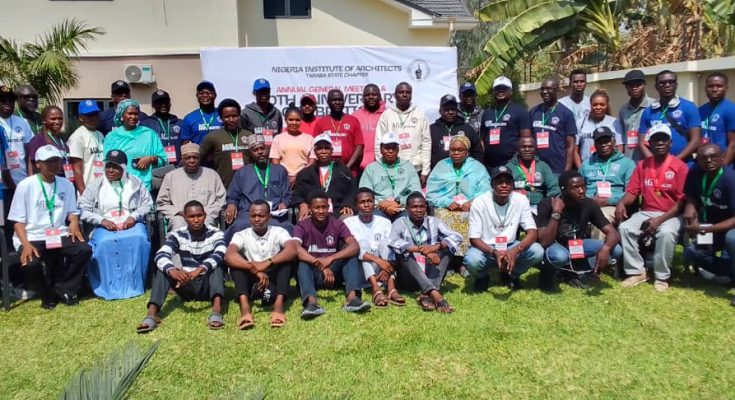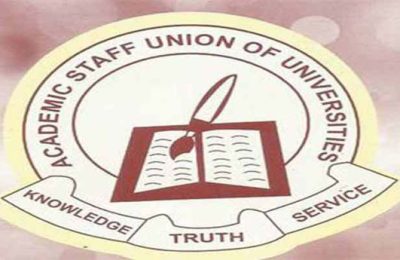
The Nigeria Institute of Architects (NIA), Taraba State on Tuesday expressed grave concern over the increasing involvement of unqualified practitioners in the building profession, attributing frequent building collapses in Taraba and Nigeria to their activities.
Permanent Secretary, Taraba State Ministry of Works and Infrastructure, Hadiza Bello-Yero stated this during the 2025 Annual General Meeting and the 10th anniversary celebration/ election of new members of the association in Taraba held at the Blue Nile Suites, Jalingo with the theme, “Architects as Leaders of the Built Environment.”

The Permanent Secretary lamented that the profession had been overtaken by quacks, leading to substandard constructions.
“Our profession has been hijacked by quacks. Many buildings collapse because NIA members are not involved in the design and supervision stages.
ALSO READ: 2025 budget: Labour Minister calls for increased funding to boost job creation
“With advancements in technology, including Artificial Intelligence, anyone who can use a computer to manipulate and produce designs, often bypassing regulations.”
She urged the government to scale up enforcement of building control laws and regulate the industry more to prevent unqualified individuals from undertaking construction projects.
In his remarks, the outgoing State Chairman, Arc. Ibrahim Kawuwa, harped on the need for collaboration between the government and industry professionals to mitigate building collapse cases.
Reflecting on the chapter’s journey since its inauguration in 2015, Kawuwa commended the achievements made over the past decade and called for a renewed commitment to excellence in architecture, design, and construction in the state.
Also speaking Arc. Ali Mukhtar-Adnan, the 3rd Vice President of NIA, in a keynote address delivered by Arc. Aliyu Babaji noted that architects leadership transcends technical expertise and called on them to promote leadership, transparency and integrity as leaders of the built environment.
“Our leadership transcends technical expertise. It is about advocating for best practices, engaging stakeholders, and driving solutions that address global challenges such as urbanisation, climate change, and social equity,” he said.
He encouraged members to elect leaders with integrity, dedication, and a collaborative spirit to foster the growth of the chapter and the profession.
In his lecture, the guest speaker, Arc. Bulus Bello-Umar, stressed the importance of creating innovative, habitable spaces while leveraging technology and professionalism to meet client needs without compromising environmental standards.








